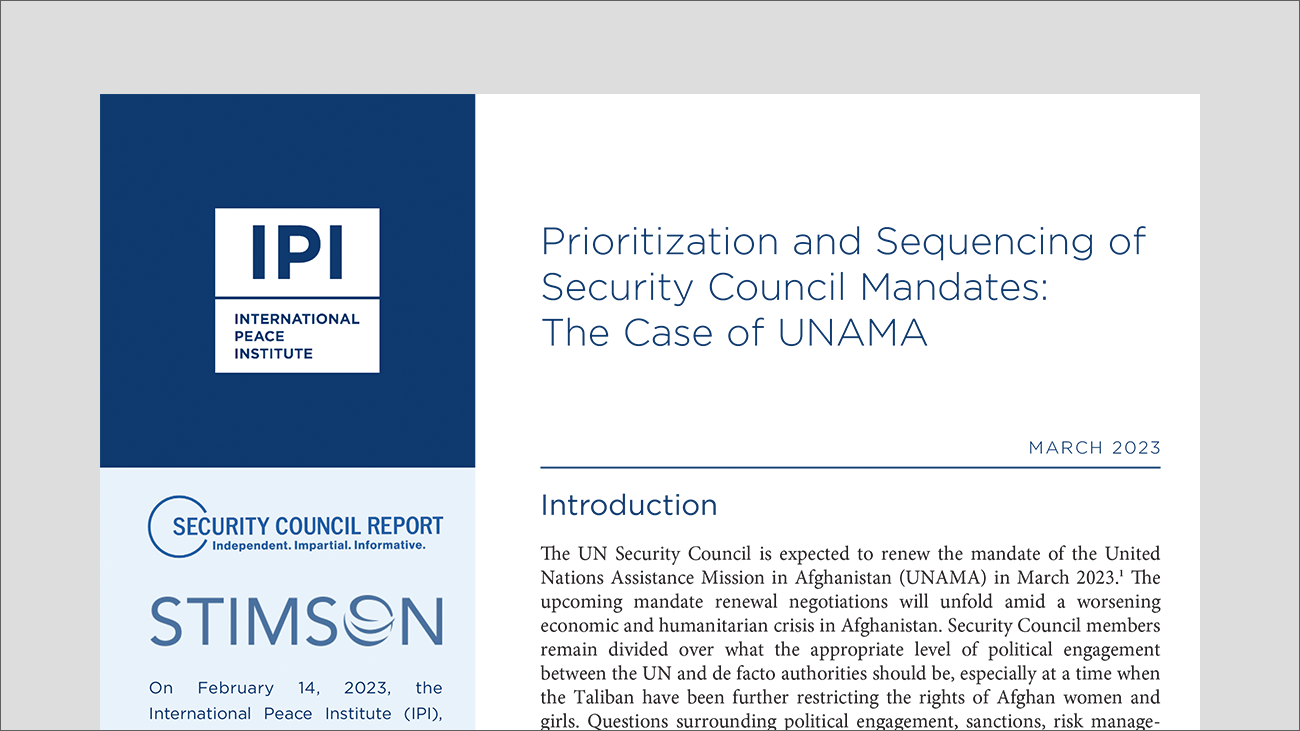
The UN Security Council is expected to renew the mandate of the United Nations Assistance Mission in Afghanistan (UNAMA) in March 2023. The upcoming mandate renewal negotiations will unfold amid a worsening economic and humanitarian crisis in Afghanistan. Security Council members remain divided over what the appropriate level of political engagement between the UN and de facto authorities should be, especially after the lack of progress in getting the Taliban to change course on its policies restricting the rights of Afghan women and girls. Questions surrounding political engagement, sanctions, risk management and aid diversion, development assistance, the threat of terrorism, and ongoing human rights violations all impact the latest conversations around Afghanistan and UNAMA’s role in the country.
In this context, the International Peace Institute (IPI), the Stimson Center, and Security Council Report co-hosted a roundtable discussion on February 14, 2023. This roundtable offered a platform for member states, UN officials, civil society stakeholders, and independent experts to share their assessments of the situation in Afghanistan in a frank and collaborative manner. The discussion was intended to help the Security Council make more informed decisions with respect to the prioritization and sequencing of UNAMA’s mandate and the mission’s strategic orientation and actions on the ground.
Participants largely agreed that UNAMA’s mandated priorities are still relevant to the UN’s overall engagement in the country, even amid a deteriorating situation on the ground. They also agreed that the current mandate text includes strong substantive language on political engagement, human rights, and gender and that it also provides UNAMA with enough flexibility to prioritize its work based on evolving conditions on the ground.
The following issues are likely to shape the council’s negotiations on UNAMA’s mandate renewal:
- Balancing between supporting UNAMA’s quiet diplomacy and encouraging its public advocacy across multiple mandate areas, considering the restrictive domestic context;
- Reinforcing UNAMA’s role in coordinating and facilitating humanitarian assistance with UN and non-UN partners during a period of protracted crises;
- Supporting regional and international engagement on Afghanistan, including UNAMA’s potential role in facilitating dialogue with the de facto authorities;
- Ensuring the safety of UN personnel and their interlocutors while still implementing the mission’s mandate; and
- Sustaining the substantive progress achieved through negotiations on Resolution 2626 (2022) while considering whether there is a need to adapt the mandate to the latest developments in the country.







